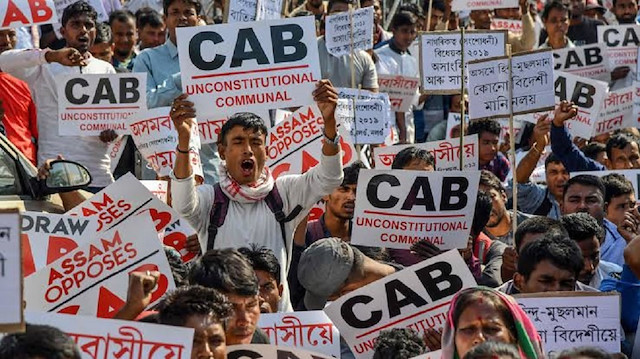
India’s new citizenship is “fundamentally discriminatory” in nature and does not offers Muslim the same protection as other minorities, the UN rights office said on Friday.
Jeremy Laurence, spokesman for the UN High Commissioner for Human Rights Office, said the amended law appears to undermine India’s commitment to equality before the law enshrined in the country’s constitution.
On Wednesday, India’s parliament passed a bill that would grant citizenship to six minorities from Afghanistan, Pakistan and Bangladesh -- all Muslim-majority nations in South Asia.
The controversial law was enacted after Indian President Ram Nath Kovind signed it on Thursday.
The UN official said the law also undermines India’s obligations under the International Covenant on Civil and Political Rights and the Convention for the Elimination of Racial Discrimination, to which the country is a State party.
“Although India’s broader naturalization laws remain in place, these amendments will have a discriminatory effect on people’s access to nationality,” said Lawrence.
The UN rights office said that all migrants, regardless of their migration status, are entitled to respect, protection, and fulfilment of their human rights.
It noted that India endorsed the Global Compact for Safe, Regular, and Orderly Migration just a year ago.
The compact commits states to respond to the needs of migrants in situations of vulnerability, avoiding arbitrary detention and collective expulsions, and ensuring that all migration governance measures are human rights-based.














